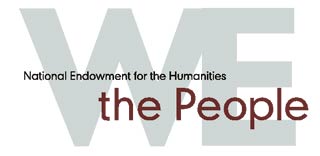On this page:
For Teachers » Core Concepts
CONCEPT 6
At some point, each colonist had to face the individual dilemma of whether to remain loyal to the Crown or resist, knowing that his choice would have consequences.
Which side are you on? Why? What are the personal costs of taking a position on an important issue? Are you willing to sacrifice for your ideals?
During the imperial crisis Americans had to choose sides and their choices had consequences. Merchants debated between their political ideals and their pocketbooks as they considered signing non-importation agreements; patriot John Adams risked ostracism to defend British soldiers involved in the Boston Massacre; newspapers chronicled the fates of those who opposed popular will. As is true today, one’s political position in the 1760’s and 1770’s often had significant personal consequences.
- the question of where one’s loyalty lies is a very personal decision that depends on many factors including family ties and economics
- personal choices in times of war are considered public knowledge
- colonists could face major repercussions for their choice of Tory or Patriot sides
GOALS:
As a result of using this website, students will understand that...- identifying pertinent documents:
- finding at least two documents from the Coming of the American Revolution website
- explaining how they illustrate this goal
- interpreting the documents
- conducting a Document Analysis (see Document Analysis Worksheet)
- answering Questions to Consider (writing and discussion prompts) at bottom of each document description
- investigating the significance and interconnections of the documents
- following one or more of the Further Exploration research assignments and project suggestions at bottom of each document description
- drawing conclusions backed by evidence from documents and introductory essays
- answering the following Framing Questions (drawn directly from the stated Goals above) based on those conclusions and that evidence collected from the documents:
- What are the factors influencing decisions of loyalty?
- Why are personal choices in times of war considered public knowledge?
- What repercussions might colonists have to face as a result of their choices?
OBJECTIVES:
Students demonstrate their understanding of this concept by...Documents
The Stamp Act
Prosperity the End; Protectionism the Means
The Sons of Liberty
"Conducted to the General Satisfaction of the Publick"
The Townshend Acts
"the excessive use of foreign superfluities"
At a Meeting of the Freeholders and other Inhabitants of the Town of Boston, legally assembled at Faneuil-Hall, on Wednesday the 28th of October 1767
View Document
"Deprived of the Councils of a General Assembly"
Boston, September 14, 1768. Gentlemen, You are already too well acquainted with the melancholly [sic] and very alarming circumstances to which this province, as well as America in general, is now reduced ...
View Document
Non-Consumption and Non-importation
Merchants vote: block English trade!
"any trifling package"
The Boston Tea Party
"You Are ... Political Bombadiers"
"The following was dispersed in Hand Bills among the worthy Citizens of Philadelphia ..."
Article from page 2 of The Boston-Gazette, and Country Journal, Number 968, 25 October 1773
View Document
342 Chests of Tea into the Sea
"Boston, December 20. On Tuesday last the body of the people ..."
Article from page 3 of The Boston-Gazette, and Country Journal, Number [976], 20 December 1773
View Document
Good and Loyal Subjects Speak up
"At a Town-Meeting held in Marshfield ..."
Article from pages 1-2 of The Massachusetts Gazette; and the Boston Post-Boy and Advertiser, Number 859, 31 January - 7 February 1774
View Document
Good Indians, Bad Indians
"We hear from Weston in the County of Middlesex ..."
Article from page 3 of The Massachusetts Gazette; and the Boston Post-Boy and Advertiser, Number 867, 28 March - 4 April 1774
View Document
The Coercive Acts
"we suffer in the common cause"
Gentlemen, The evils which we have long foreseen are now come upon this town and province ...
View Document
At a Town Meeting in Braintree
"Thursday, June 30. Boston. Whereas scruples have arisen ..."
Article from page 3 of the Massachusetts Spy, Number 178, 30 June 1774
View Document
Paying for the Tea
"To the Printers of the Massachusetts Gazette ..."
Article from page 2 of The Massachusetts Gazette: And The Boston Weekly News-Letter, Number 3693, 14 July 1774
View Document
An Abundance of Goodwill
Letter from Titus Hosmer of the Committee of Correspondence for Middletown, Connecticut, to the Boston Committee of Donations (copy in letterbook volume 2), 17 October 1774, pages 81-83
View Document
Depend on the Virginians
Letter from William Black of the Committee of Correspondence, James River County, Virginia, to the Boston Committee of Donations (copy in letterbook volume 2), 22 December 1774, pages 94-95
View Document
The Formation of the First Continental Congress
Reports from Philadelphia
Lexington and Concord
A Powder Alarm
Sounding the Alarm
Permits to Pass
In Provincial Congress, Watertown, April 30, 1775. Whereas an Agreement has been made ...
View Document



